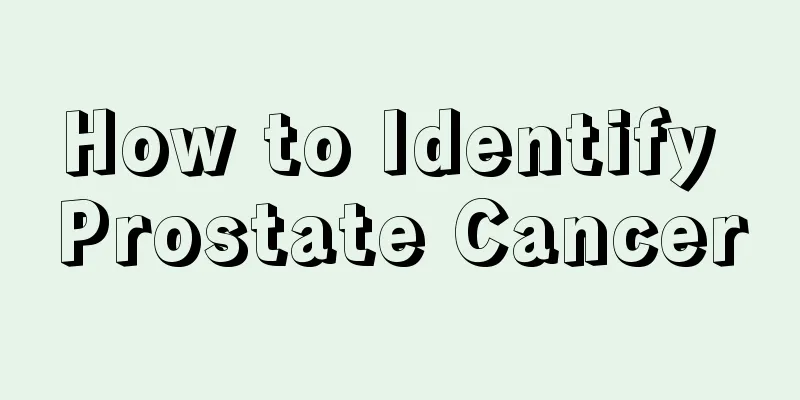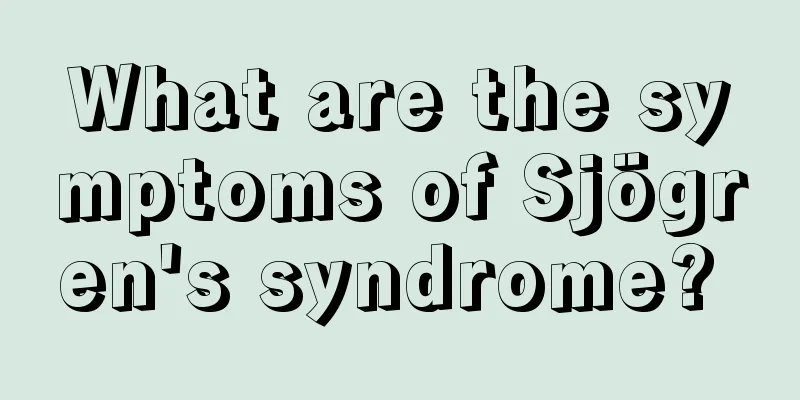What is the reason for choking when swallowing food

|
Many people have a feeling in their lives that when they swallow food, they feel a choking sensation in their throat, which is very uncomfortable. We need to be vigilant when facing this problem, because sometimes if there are some diseases, this symptom may also appear, such as the common early esophageal cancer, or mid-term esophageal cancer and late-stage esophageal cancer. The most obvious symptom is a feeling of food choking in the throat. 1. Early esophageal cancer Clinically, symptoms are often not obvious, and are mostly caused by local lesions stimulating abnormal esophageal motility or spasm, or by local inflammation, erosion, superficial ulcers, and tumor infiltration. They often recur, and the intervals may be asymptomatic and may last for several years. The main characteristic symptoms are discomfort behind the sternum or dysuria. The pain is burning, stabbing, or pulling and friction-like, especially when eating rough, overheated, or irritating foods. Food passes slowly with mild choking, and most progress is slow. Other rare symptoms include fullness behind the sternum and dryness and tightness in the throat. In 3% to 8% of cases, there is no feeling at all. 2. Mid-stage esophageal cancer The typical symptom is progressive dysphagia. Because the esophageal wall has good elasticity and expansion ability, the dysphagia symptom is not obvious when the cancer has not involved more than half of the circumference of the esophagus. The degree of dysphagia is related to the pathological type, with the constrictive and medullary types being more severe than other types. In about 10% of cases, symptoms or initial symptoms are not dysphagia, which accounts for 20% to 40% and causes delayed diagnosis of esophageal cancer. Some patients experience pain behind the sternum or between the shoulder blades when swallowing food. The location of the tumor suggests that there has been external invasion causing esophagitis, mediastinitis or deep esophageal ulcer. 3. Advanced esophageal cancer It is mostly caused by compression and complications, and may metastasize to the lymph nodes and blood vessels. If there is ulcer, inflammation or tumor invasion in the affected section of the esophagus, it will cause persistent dull pain behind the sternum or in the back. If the pain is severe and accompanied by fever, one should be alert to whether the tumor has perforated or is about to perforate. Cancerous lymph node metastasis is often behind the attachment of the sternocleidomastoid muscle above the clavicle, more often on the left side than on the right side. If the recurrent laryngeal nerve is compressed, hoarseness occurs; if the cervical sympathetic nerve is compressed, Horner syndrome occurs. Laryngitis caused by inhalation inflammation can also cause hoarseness, and indirect laryngoscopy can help to identify it. |
<<: What are the physical fitness categories?
>>: What causes fungal otitis externa?
Recommend
What is the best way to remove tooth stains quickly?
As technology becomes more and more advanced, peo...
What does colonoscopy check
Our human body is made up of many intestines, whi...
What are the effects and functions of pine needle oil
According to incomplete statistics, many people a...
Anal congestion and edema
When going to the toilet, we need to excrete fece...
There is a lump in the crack of my butt
The crevice between the buttocks is also the loca...
Is there any specific medicine for bone cancer
Is there any specific medicine for bone cancer? D...
What are the signals of glioma onset?
Now, with the changes in people's living stru...
What exercises can't be done by people with colon cancer
During treatment and rehabilitation, patients wit...
What foods are good for sinusitis?
Sinusitis is a relatively common type of rhinitis...
Traditional Chinese medicine external application therapy for esophageal cancer
The TCM external treatments for esophageal cancer...
How to remove hair balls from clothes
Sweaters can be said to be indispensable in our w...
Can I eat hawthorn if I have stomach acid? The truth is this
Hawthorn is a common food in daily life, especial...
Can nasal endoscopy detect nasopharyngeal cancer? What are the dietary taboos for nasopharyngeal cancer?
When we suspect that we have nasopharyngeal cance...
Dizziness and nosebleeds after looking down for a long time are actually related to this
In daily life, many people experience dizziness a...
What are the functions and effects of tocopherol
We need to pay special attention to the things us...









